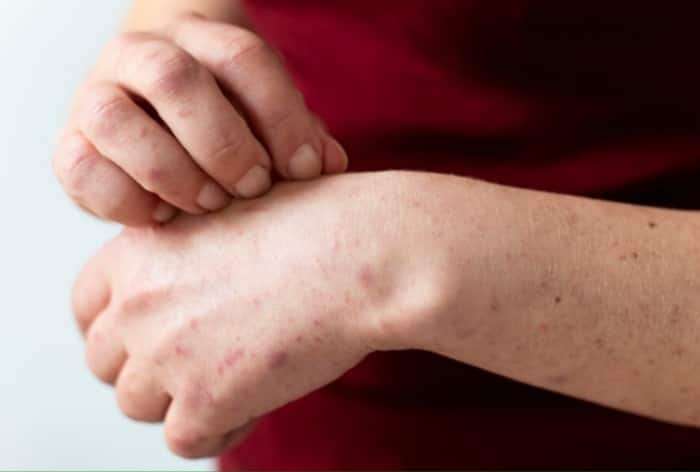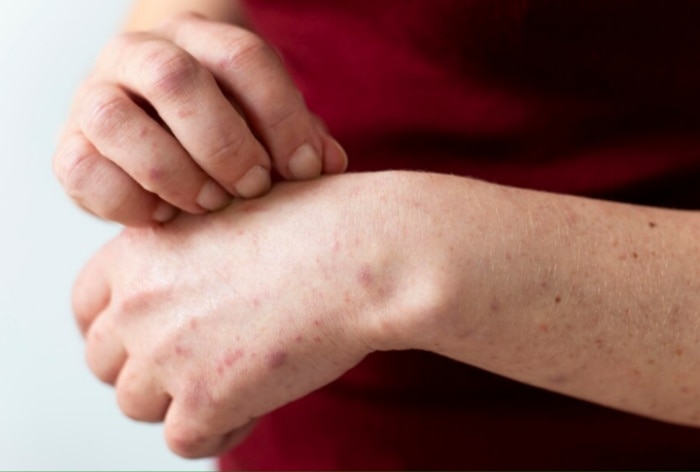A new variant of Mpox has been detected in Thailand. Read on to know more about the symptoms, and spike in cases.

Thailand on Thursday confirmed an mpox case reported this week was the clade 1b strain of the virus, the second confirmed case of the variant outside of Africa. The case is a 66-year-old European man who had arrived in Thailand last week from an unspecified African country where the disease was spreading. Clade 1b causes death in about 3.6% of cases, with children more at risk, according to the WHO.
Photo Gallery: Mpox Cases on Rise: Vaccine to First Symptoms, 6 Essential Things to Know About This Global Health Scare
“The test results confirm that he is infected with the Clade 1b strain of monkeypox, which is the first case diagnosed in Thailand, but this man is likely infected from an endemic country,” Thongchai Keeratihattayakorn, director-general of the Department of Disease Control, told Reuters.
All About Mpox Clade 1B New Variant
He said no other local infections had been detected through contact tracing. Clade 1b has triggered global concern due to the ease with which it spreads though routine close contact. The disease is caused by a virus transmitted by infected animals but passed from human to human through close physical contact. It causes fever, muscular aches and large boil-like skin lesions.
While mpox has been known for decades, a new deadlier and more transmissible strain – known as Clade 1b – has driven the recent surge in cases.
A case of the variant was confirmed last week in Sweden and linked to a growing outbreak in Africa, the first sign of its spread outside the continent. The World Health Organisation declared the recent outbreak of the disease a public health emergency of international concern after the new variant was identified.
How Does Mpox Virus Spread?
Respiratory droplets might play a role in the spread of Mpox but not as efficiently as Covid-19 or even flu, said infectious disease experts as per IANS report. According to the US Centers for Disease Control and Prevention (CDC), prolonged face-to-face interactions (such as talking or breathing)” may increase the risk of transmission. The WHO also maintains that respiratory droplets (and possibly short-range aerosols) can result in Mpox transmission.

